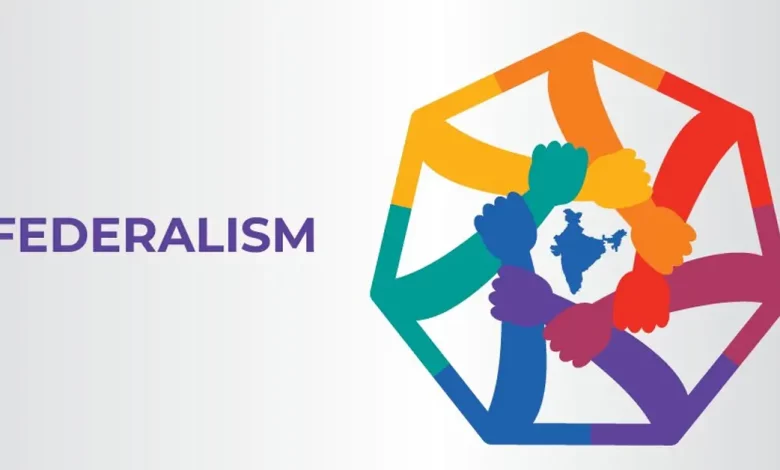
Context: The Supreme Court bench, composed of five judges, ruled on 12th December 2023 that Article 370 of the Indian Constitution is a characteristic of asymmetric federalism and does not imply internal sovereignty.
Asymmetric Federalism:
- Asymmetric federalism refers to a system in which the powers and relationships between the different federal units within a federation are unequal in the political, administrative, and fiscal domains.
- Asymmetry in a federation can be seen in both the relationship between the central government and the states, as well as among the states themselves.
- Asymmetric arrangements can stem from various factors, including the implementation of administrative, political, and fiscal systems, rather than just constitutional arrangements.
- The founders of India understood the importance of embracing cultural diversity in governance, allowing for self-governance while also promoting shared governance.
Why is India referred to as having asymmetric federalism?
- In India, the main administrative units are the Centre and the States, but there are also other forms that are established to cater to specific local, historical, and geographical circumstances.
- In addition to the central government and state governments, India has Union Territories with and without legislatures.
- Puducherry and Delhi have legislatures, while other Union Territories do not. There are differences between Puducherry and Delhi, as Puducherry has legislative powers on certain matters, while Delhi has exceptions in the areas of police, land, and public order.
- The relationship between the Centre and the States in India is not equal in all aspects, leading to an asymmetrical federal system.
Article 370 and Article 371 of the Indian Constitution:
- The relationship between Jammu and Kashmir and India was asymmetric until August 6, 2019, when its special status was revoked.
- Under Article 370, Jammu and Kashmir had its own Constitution, defined its own permanent residents, restricted outsiders from owning property, and had the privilege of not automatically applying Indian laws.
- Indian laws had to be specifically permitted by the Jammu and Kashmir Assembly.
- The President had the power to extend provisions of the Constitution to the State, with or without modifications.
- Article 371 of the Indian Constitution provides special provisions for certain states in India.
- This includes empowering governors to have special responsibilities in these states, where their discretionary power overrides consultation with the Council of Ministers.
- Examples of states with these special provisions include Maharashtra, Gujarat, Nagaland, Assam, Manipur, Andhra Pradesh, Sikkim, Mizoram, and Arunachal Pradesh.
Why is it necessary to have asymmetric federalism?
- Asymmetrical federalism is important for countries like India that are multicultural and diverse.
- It allows for self-governance while also sharing power, ensuring that minority groups are not marginalised.
- It also addresses state-specific issues and strengthens federalism by decentralising power.
- India’s founding fathers understood the importance of recognizing cultural differences and allowing for self-rule within a shared framework.
Source: IE
Practice question:
Q. What is asymmetric federalism?
- A system where power is distributed equally among all levels of government
- A system where power is concentrated at the central level of government
- A system where different regions or states have different powers and relationships with the central government
- A system where federalism is entirely absent





.png)



